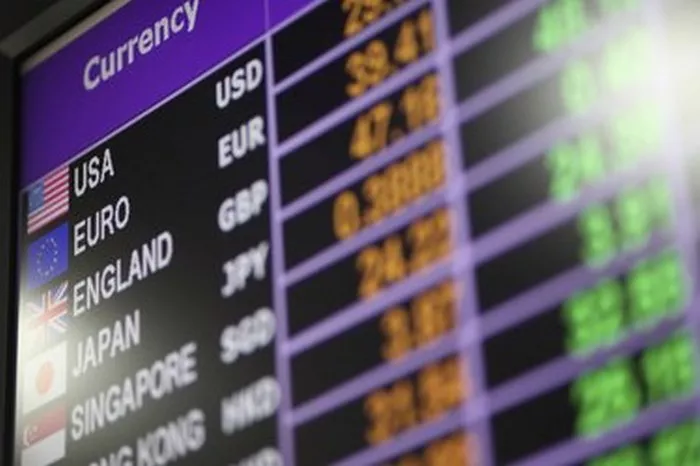In the world of finance and investing, stock futures represent a critical component of the derivatives market. They offer traders and investors a unique opportunity to speculate on the future price movements of individual stocks or stock market indices.
Understanding Stock Futures
Stock futures, also known as equity futures, are financial derivatives contracts that derive their value from an underlying stock or stock market index. These contracts obligate the parties involved to buy or sell the underlying asset at a predetermined price on a specified future date. The underlying asset can be an individual stock or a basket of stocks, often represented by a stock market index such as the S&P 500.
How Stock Futures Work
Stock futures contracts typically include the following key elements:
Underlying Asset: This is the stock or stock index upon which the futures contract is based. For example, if a futures contract is linked to Apple Inc. (AAPL), the underlying asset is AAPL stock.
Contract Specifications: Each stock futures contract has specific terms and conditions, including the contract size, expiration date, and tick size. For instance, a standard AAPL futures contract may represent 100 shares of AAPL stock.
Expiration Date: Stock futures contracts have predefined expiration dates. These dates can vary but are typically quarterly.
Long and Short Positions: Traders can take either a long (buy) position or a short (sell) position in stock futures. A long position involves buying the futures contract in anticipation of a price increase, while a short position involves selling the contract with the expectation of a price decrease.
Price (Futures Price): The price at which the underlying asset will be bought or sold in the future is known as the futures price. This price is agreed upon when the contract is established.
Leverage and Margin in Stock Futures
One of the key features of stock futures is leverage. Leverage allows traders to control a larger position with a relatively small amount of capital. While leverage can amplify profits, it also increases the potential for losses. To mitigate this risk, traders are typically required to post a margin, which is a portion of the contract’s total value, as collateral. Margin requirements help ensure that traders can meet their financial obligations if the market moves against their positions.
Hedging and Risk Management
One of the primary purposes of stock futures is risk management. Investors and institutions use stock futures to hedge against adverse price movements in their stock portfolios. For example, if an investor owns a significant number of shares in Company X and is concerned about a potential market downturn, they can enter into a short position in Company X’s stock futures. If the stock price falls, the losses in the stock portfolio may be offset by gains in the short futures position.
Speculation and Trading Opportunities
While risk management is a critical aspect of stock futures, these contracts are also widely used for speculation. Traders seek opportunities to profit from short-term price movements in the underlying assets. Stock futures offer liquidity, allowing traders to enter and exit positions with ease, making them an attractive choice for those seeking to capitalize on market volatility.
Stock Futures vs. Stock Options
Stock futures are often compared to stock options, another type of derivative. While both derivatives provide exposure to the underlying asset, they have distinct differences:
Obligation vs. Right: Stock futures obligate the parties to buy or sell the underlying asset at a predetermined price and date. In contrast, stock options provide the holder with the right (but not the obligation) to buy or sell the underlying asset.
Leverage: Stock futures typically involve higher leverage than stock options, as traders control a larger position with a smaller initial investment.
Expiration: Stock futures have fixed expiration dates, while stock options can have multiple expiration dates and strike prices, providing more flexibility.
Cost: Stock options typically involve the payment of an options premium, which can vary in amount. Stock futures do not have a premium cost; instead, they may require an initial margin deposit.
The Significance of Stock Futures
Stock futures serve several important roles in the financial markets:
Price Discovery: Stock futures prices reflect market expectations about future stock market movements. They provide valuable information about investor sentiment and can influence the direction of the cash market.
Risk Management: Investors use stock futures to protect their portfolios from potential losses due to adverse price movements. Hedging with stock futures can help reduce exposure to market volatility.
Liquidity: Stock futures markets are highly liquid, facilitating efficient trading and price discovery. This liquidity benefits both hedgers and speculators.
Arbitrage Opportunities: Traders often engage in arbitrage by simultaneously buying and selling related securities in different markets to profit from price discrepancies. Stock futures can be an essential component of arbitrage strategies.
Conclusion
Stock futures are an integral part of the global financial landscape, providing opportunities for both risk management and speculation. These derivatives contracts derive their value from underlying stocks or stock market indices, allowing traders to gain exposure to these assets with leverage. While they can be powerful tools for managing risk and capitalizing on market movements, stock futures also come with inherent risks and complexities. Understanding how stock futures work and their role in the financial markets is essential for anyone looking to navigate the world of derivatives and enhance their investment strategies.


